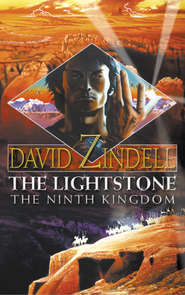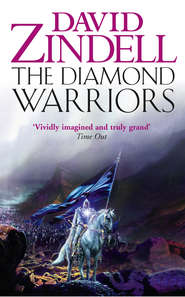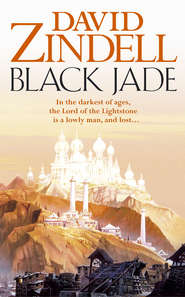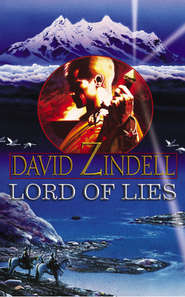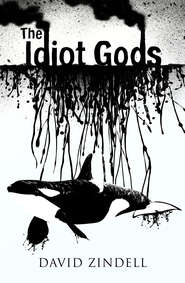По всем вопросам обращайтесь на: info@litportal.ru
(©) 2003-2024.
✖
War in Heaven
Автор
Год написания книги
2018
Настройки чтения
Размер шрифта
Высота строк
Поля
‘Because you’re ronins!’ Zapata Karek said.
‘And you’re ignorant of what is really occurring in Neverness,’ Vadin Steele said.
‘Ignorant! Well, you’re as power-hungry as a Scutari shahzadi.’
For a long time, the pilots argued among themselves like novices unable to choose captains for a game of hokkee. Danlo listened to then words grow wilder and more belligerent with every pilot who spoke. Their childishness might have amused him, but a great many lives hung on the slender thread of then reaching an understanding. Although Danlo felt time slipping away like sands on a windswept beach and was eager to complete his journey, he felt that he should be sure of who led the Fellowship of Free Worlds before acting on their behalf as an ambassador to Neverness. And Demothi Bede, when Danlo roused him from the half-sleep of quicktime, agreed with him. Lord Bede seemed particularly shocked at the unforeseen play of events.
‘But this is madness!’ the thin, reedy Demothi Bede said in his thin, old voice. He crowded with Danlo into the pit of the Snowy Owl. ‘If we don’t do something, we’ll be at war with each other instead of the Ringists.’
‘Truly, we should do something,’ Danlo said as he floated in his formal black robes. ‘Since we’re supposed to be ambassadors and peacemakers.’
‘It’s obvious that the ronin pilots must join us,’ Lord Bede said. He was very much a traditionalist, and his face fell dour and smug. ‘They should take vows to the New Order.’
Now Danlo did smile, for although a thousand Civilized Worlds were represented in the ships sailing through space all around them, Cristobel and the Sonderval – and the Lord Bede – acted as if only the pilots of the two Orders mattered. But what right did they have, Danlo wondered, to choose the fates of thirty thousand ships and millions of men and women? These lords and masters of his Order obviously assumed that after they had decided upon a Lord Pilot, they would parcel out the other ships to their command like colourfully-wrapped presents given at Year’s End – or rather as the Sonderval had already done with the black ships and deep-ships he had escorted to Sheydveg. Or if the Sonderval and Cristobel could not decide who should lead whom, then the two hundred pilots from Thiells and the Fellowship of Free Pilots might fight independently of each other – after first fighting each other for the prize of the vast fleet waiting in the light of a cool, orange star.
‘I must speak to the pilots,’ Danlo told Demothi Bede. For the moment, he was faced away from his fellow pilots’ arguments, and the pit of his lightship was quiet. ‘This fighting among ourselves, this arrogance of ours … is shaida.’
‘Do you have a plan, then, Pilot?’ Demothi Bede asked.
Danlo nodded his head, then told him his plan.
‘Very well,’ Demothi said, smiling his approval. ‘If you’re to try to stop a war, you might as well begin now.’
And so Danlo added his voice to the cacophony filling the pits of three hundred and five lightships. As a master pilot he had as much right to speak as anyone, and he too instantiated as a hologram among them. Because of his renown at mastering a chaos space and crossing the entire Vild – or perhaps because of his blazing blue eyes – the other pilots fell silent and listened to him.
‘We pilots,’ he said, ‘have thought of ourselves as the spirit of the Civilized Worlds. But we have never been their rulers. The Fellowship of Free Worlds – but where is our fellowship when we call each other names like barbarians? And where is the freedom of these worlds if they must simply wait for us to order them to war? Do they, who have homes and children, risk less than we? If we cannot stop this war, they will die like snowworms caught in the sun, perhaps a thousand or a million of them for every pilot who loses his ship. Truly. Where is their freedom, then, to choose their own fate? We are pilots of three hundred and five lightships. Outside my window I have counted … a hundred times as many other ships. Shouldn’t we let their pilots choose who will lead them to war?’
Most of the lightship pilots, upon listening to Danlo, immediately saw the sense of what he said. In truth, few of them really wanted to wage war as two separate Orders of ships, and they dreaded the uncertainties of Cristobel’s dispute with the Sonderval. The Sonderval, for his part, was loath to surrender any important decision to such inferior beings as the pilots and peoples of the Civilized Worlds. But he was at heart a shrewd man whose farsightedness overshadowed even his arrogance. And so, with carefully feigned reluctance, after trading knowing looks with Danlo, he approved this proposal. Only Cristobel, really, and a few of his closest friends such as Alesar Estarei, argued against Danlo. But the tide of passion – the tide of history – had already turned against him. In the pits of their ships, two hundred and fifty pilots struck their diamond rings against whatever hard surface they could find, and called out that the Fellowship of Free Worlds should decide its own fate.
Of course, there was never any real doubt as to what the Fellowship would decide – if indeed they could decide anything at all. More than thirty thousand ships now orbited Sheydveg, and these held at least five million men and women representing a thousand Civilized Worlds. Many of these were princes or gurus, exemplars or elders or arhats. Many there were who might have wished to command the fleet themselves, but except for Markoman of Solsken and Prince Henrios li Ashtoreth, no one was so deluded as to imagine that he could match the skills of even the youngest of lightship pilots. Their debate, then, centred round how they should choose between the Sonderval and Cristobel as Lord Pilot of the Fellowship. (Or if they should favour Helena Charbo or some other master pilot less vainglorious.) Some held that each man and woman of the Fellowship should cast a vote for whomever he believed to be the greatest pilot. Some thought this unfair since a few worlds had sent more than fifty deep-ships carrying thousands of soldiers in each, while many worlds had sent only a few score of black ships; each individual world, it was argued, should cast a single vote.
There isn’t space here to describe the tortuous pathways by which these many people of many worlds came to a decision. It took them sixteen days to agree that each world would indeed have one vote. It took them much less time to cast these votes in favour of allowing the pilots of both Orders to lead them; as Danlo had hoped, they chose the Sonderval as Lord Pilot of the Fellowship of Free Worlds. But the Sonderval was not to be their autarch or ruler; his power was as a warlord only, to command them in battle if they should decide on war. This crucial decision – and many others relating to grand strategy – they would make for themselves. And if they should win against the Ringists and force a peace upon Neverness, it was they who would decide its terms.
The effect of allowing the Civilized Worlds a greater part in wielding power was profound. Although it limited the Sonderval’s freedom to impose his will upon those he led, it actually strengthened his leadership, for it strengthened the feeling of fellowship just beginning to flower among these many worlds like a delicate, new bud. Among those who would die together in war, between leader and led, there can never be too much fellowship. This, too, was part of Danlo’s plan. Many thanked him for his part in ending the stalemate between Cristobel and the Sonderval and playing midwife to the birth of the true Fellowship of Free Worlds. But when Lord Demothi Bede congratulated him on a fine work of diplomacy, his response was strange.
‘Truly, I have helped close the rift between our two Orders of pilots,’ he said in the quiet of his ship’s pit. As he spoke to Demothi Bede (and to the Ede imago), he touched the lightning-bolt scar cut deeply into his forehead.
‘Even Cristobel has accepted the inevitable,’ the Ede imago said with a programmed smile.
‘As well he should,’ Demothi Bede said, ‘considering the Sonderval’s graciousness.’
The Sonderval, after being chosen to lead the fleet, had invited Cristobel and the other ronin pilots to take vows as pilots of the New Order. As an incentive, he had offered to make Cristobel and Alesar Estarei pilot-captains of the newly-formed Eleventh and Twelfth battle groups – and even named Cristobel as his counsellor in all matters of tactics and strategy. Given the Sonderval’s private ways, this would prove an empty honour, but it seemed to cool the fiery Cristobel nevertheless.
‘All has fallen out as you’d hoped,’ Demothi Bede said to Danlo as he played with a mole on the side of his face. ‘Even Prince Henrios has agreed to lead his ships under Alesar Estarei’s command – a prince of Tolikna Tak under orders from a simple master pilot!’
‘Yes,’ Danlo agreed, ‘there is peace among the Fellowship, now.’
‘Then why do you seem so sad?’
Danlo stared out of his lightship’s window at the flashing lights of thirty thousand other ships spread out through near-space above Sheydveg. His eyes fell grave and deep, and he said, ‘What if I have brought a peace to the Fellowship … only to have created a better engine for the waging of war?’
‘That’s possible, Pilot. But what if you’ve helped create a stronger Fellowship dedicated to avoiding war? Isn’t it possible that there will be no war?’
But the Fellowship was already at war, or so Sabri Dur li Kadir and many others argued during the days that followed. The Ringists’ ambush and destruction of fifteen ships certainly constituted an act of war, so why should the Fellowship pretend that there still might be peace? Could they trust the Ringists not to fall against them in full strength out of the howling black forest of the manifold? Should they themselves avoid destroying the Ringists’ ships if offered such a chance?
‘We must fall against them before they fall against us,’ Sabri Dur li Kadir said in full conclave with all thirty thousand ships of the Fellowship. His face was as black as obsidian and as sharp. ‘We must lay our plans as soon as possible and then attack.’
There were, however, voices of peace as well. Danlo and Lord Bede argued that the Fellowship should use its power to discourage the Ringists from war, while Makara of Newvannia, a well-known arhat, suggested that the Ringists’ raid might be overlooked as an unfortunate accident. And one of the Vesper exemplars, Onan Nayati, who was either a coward or a very wise man, told everyone that they would be mad to make war upon the Ringists for they would be as a hawk attacking an eagle. This led to a measuring of their respective strengths. The Fellowship comprised one thousand and ninety-one worlds opposed to Ringism – and four more if the alien worlds of Darghin, Fravashing, Elidin, and Scutarix could be counted, which of course they couldn’t because they would never send ships to fight in a human war. Perhaps four hundred worlds had decided to remain neutral, and an equal number warred with themselves as to whom they would support. That left some twelve hundred and two worlds as fervently Ringist, many of them the richest and most powerful of the Civilized Worlds. Onan Nayati estimated that they could gather a fleet of at least thirty-five thousand deep-ships and black ships. And as for the lightships of Neverness, the shining swords of the night, Cristobel said that Lord Salmalin would command four hundred and fifty-one. The odds, then, had fallen against the Fellowship, especially considering that in battle one lightship would be worth at least twenty black ships. The pilots and princes of the Fellowship might very well have decided to wait upon war, but then something happened that broadened their field of vision and reminded them that stars burned with a terrible purpose far beyond their own.
On the 83rd day of false winter a single lightship fell out to join the others in orbit above Sheydveg. This was the Infinite Rose, piloted by Arrio Verjin, a master pilot of the Old Order. That is, he had been of the Order before returning to Neverness from a journey lasting several years. But when he had seen how Ringism had ruined his beloved Order and made virtual slaves out of pilots whom he had respected all his life, he had fled across the stars to the gathering at Sheydveg. And he brought with him the most astonishing news: he had witnessed with his own eyes a battle fought among the gods. In the spaces towards the core – beyond the Morbio Inferiore where the stars blaze as densely as exploding fireworks – the god known as Pure Mind had been slain. The moon-sized lobes of his great brain had been pulverized into a glowing dust. Arrio told of the destruction of a whole region of stars, impossibly intense lights erupting out of blackness, the detonation of the zero-point energies of the spacetime continuum itself. The radiations from this apocalypse were vaster than that of a hundred supernovas. Only the gods, he said, could wield such technologies. He did not know why one god would wish to slay another. When Danlo told him of the Solid State Entity and the war among the gods, Arrio said, ‘Perhaps it was the Silicon God, then, who did this terrible thing. Or perhaps one of his allies, Chimene or the Degula Trinity. How will we ever know? But the effects of what has happened will run deep.’
And the first and most terrible effect, Arrio said, was that these explosions had created huge distortions beneath spacetime, a kind of deadly bubbling known as a Danladi-set expansion. For Arrio Verjin it had been like a tidal wave sweeping towards his fragile ship. He had barely escaped, but the Danladi wave was still spreading through the manifold like a wall of white water, expanding outwards towards the stars of the Sagittarius Arm. Soon it would reach Neverness and other worlds of the Fallaways, and then the manifold there might prove as treacherous as the spaces of the Vild.
‘We must prepare ourselves for tremendous distortions,’ Arrio told the assembled fleet. ‘The Danladi wave will perturb the entire manifold until it dies out towards the edge stars.’
The second effect of Pure Mind’s destruction was to quicken the Fellowship’s move towards war. It reminded even the lightship pilots that their power was nothing compared to the fire and lightning of the gods, who could destroy whole constellations of stars as easily as the Architects of the Old Church could blow up a single sun. If the gods were provoked, their wrath might fall upon any of the Civilized Worlds: Summerworld or Clarity or Lechoix or Larondissement. Or Neverness. As Cristobel pointed out, the gods might regard Hanuman li Tosh’s building of his Universal Computer as a bid for godhood. The eschatologists have a word for this kind of break-out from human being into something much vaster: hakariad. Throughout the galaxy over the past ten thousand years, there had been many hakariads, and perhaps many wars fought to stop such transcendent events. The gods, it is said, are jealous and do not like company. If the Silicon God saw Hanuman’s acts as a hakariad, then he might destroy the Star of Neverness – and a hundred others nearby. Therefore, Cristobel said, the Fellowship must destroy Hanuman’s Universal Computer before the gods did. This must be the first of their purposes, and to accomplish it, they must fall against Neverness in full war.
Almost all the warriors of the worlds represented in the Sonderval’s fleet saw the logic of Cristobel’s argument. It took the Fellowship, casting votes world by world, only two days to make a formal declaration of war. And so on the 85th of false winter in the year 2959 since the founding of Neverness, the War of the Gods, as it would be called, began.
That night, as Danlo prepared the Snowy Owl for his journey to Neverness, the Sonderval summoned him to a meeting. While their ships orbited Sheydveg, they manoeuvred these sleek diamond needles so that they touched side to side. And then Danlo broke the seal of his ship and entered the Cardinal Virtue, the first pilot that the privacy-loving Lord Pilot had honoured in this way. Danlo floated in the darkness, and he looked about the rather large interior of the Sonderval’s lightship, taking note of the design of the neurologics which surrounded both the Sonderval and himself like a soft, purple cocoon. The Sonderval, stern and serious in his formal black robe, waited in his ship’s pit. He greeted Danlo warmly. ‘Welcome, Pilot,’ he said, ‘I’m glad you could join me.’
‘Thank you for asking me here tonight.’
‘It is I who should thank you,’ the Sonderval said. He began to play with a large diamond brooch pinned to his black silk robe just over his heart. ‘If not for your foresight, we might have lost Cristobel and the others. And I might have been Lord Pilot over a much smaller fleet.’
Here Danlo smiled and said, ‘But no one could have known how the Fellowship would decide. There was always a chance … that Cristobel would have been chosen Lord Pilot, and not you.’
‘Chance favours the bold – as you’ve proved, Danlo wi Soli Ringess.’
Danlo bowed his head quickly, then studied the Sonderval’s wide smile and the wide, white, perfect teeth. He said, ‘Your fleet … is small enough as it is.’
‘We’ve slightly fewer deep-ships and black ships than the Ringists,’ the Sonderval said. ‘But I believe that we’ll have a more coherent command of them.’
‘And the lightships?’
‘True, they’ve half again as many as we,’ the Sonderval said. ‘But don’t forget that the best pilots went with us to the Vild. The best and the boldest, Pilot.’
‘You seem so confident,’ Danlo said.
‘Well, I was born for war – I think it’s my fate.’
‘But in war … there are so many terrible chances.’
‘This is also true, which is why I would still stop this war if I could.’
‘There … must be a way to stop it,’ Danlo said.
‘Unfortunately,’ the Sonderval said, ‘it’s easier to forestall a war than to stop one once it’s begun. Your mission won’t be easy.’







